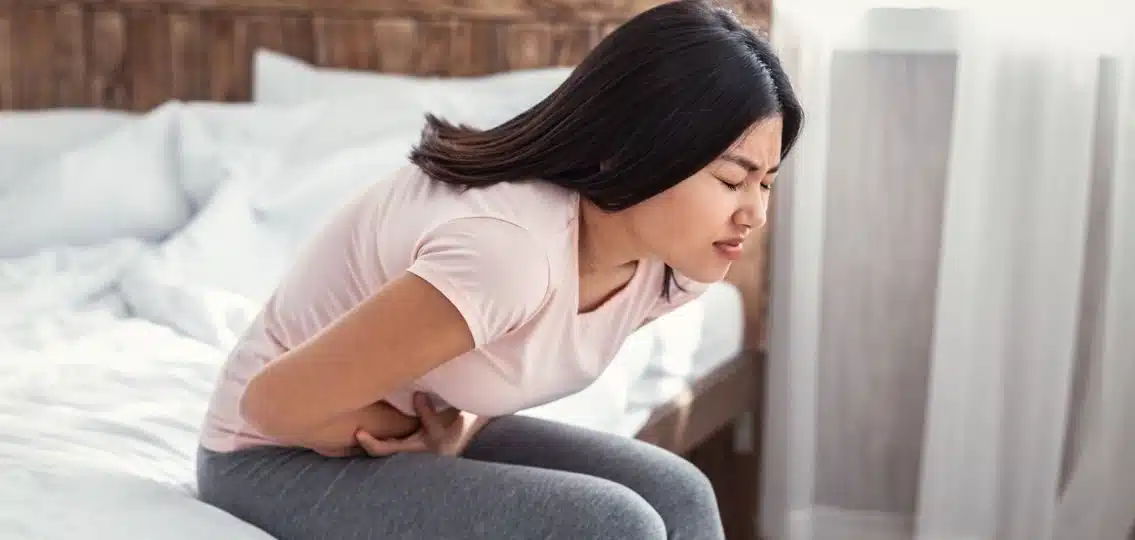Your tween or teen just started menstruating. They’re miserable from period cramps and nausea and the menstrual pain keeps them in a slump all week: they’re missing school and they’re grouchy. How can you help?
First, let them know that they’re not alone — many teens may be wondering, “are period cramps normal?” period pain is normal and ranges from mild to debilitating. And, while there is no cure for period cramps, the good news is there are plenty of ways to make the symptoms more bearable.
Dr. Anisha Abraham, pediatrician and author of “Raising Global Teens,” shares these suggestions about how to cope during the hardest time of the month.
What causes period cramps?
According to Dr. Abraham, hormone-like chemical compounds cause painful period cramps, and it’s the same chemical our bodies release during labor.
“Painful menstrual cramps, or dysmenorrhea, is due to the contraction and release of the uterine muscles, releasing a chemical called prostaglandins, which can cause severe pain, cramps, and nausea. That’s the same chemical released during labor, and that’s a lot of potential pain to deal with on a regular basis.”
Is there anything we can do at home to help with period cramps?
What to do for teenage period pain relief:
- Take over-the-counter pain relief medication.
- Track your period.
- Try exercise and relaxation techniques.
- Find period snacks that can help alleviate symptoms.
- Talk to your pediatrician to find out if birth control and supplements can help.
When period pain starts, treat it with over-the-counter pain relief medication.
“The first line of treatment, a lot of the time, is starting with a non-steroidal anti-inflammatory — basically, generic pain relief medication like ibuprofen, Aleve, or Midol.” Dr. Abraham reminds us to avoid taking them on an empty stomach and says that even if your teen tried pain relief medication before and it didn’t help, it’s worth a shot to try taking them again. “You need to take the medication with some regularity to really decrease that prostaglandin release.”
Track your period.
Dr. Abraham says, “Many young people don’t know when their periods are going to start. Using a period tracker can help find out if they’re happening within 3-5 weeks of each other.” When you track your period on the calendar or through an app, you can help reduce pain from the start by taking anti-inflammatory medication a day or two before your cycle begins.
Exercise, relaxation, and heat can help ease suffering from menstrual cramps.
Besides taking medication, something else you can do to control pain is help the uterine muscles relax. “It really comes down to ways you can relax the contractions of the uterus. Exercise can help, from running to yoga. Heat packs can also be very helpful,” Dr. Abraham says.
Talk to a doctor about taking prescription birth control and supplements to ease menstrual pain.
Dr. Abraham says, “If periods are hard to track and you’re in a lot of pain, it may be time to contact your doctor. Your primary care doctor or pediatrician might feel comfortable taking care of these issues – I don’t think you need to go straight to a gynecologist unless it’s something fairly complicated.”
Your doctor may prescribe birth control and/or supplements to help alleviate your teen’s menstrual pain.
Hormonal contraceptives
“Physicians might recommend using hormonal methods of pain reduction, like being on hormonal contraceptives (the pill, the patch, the ring, or even an intrauterine device). There are many different formulations of the birth control pill out there, some of which don’t include estrogen, particularly for people who have migraine headaches, auras, or other medical symptoms influenced by hormone levels. Mood can be influenced by the pill, like any other medication, or anything else going on in a teen’s life. Talk to your healthcare provider about any concerns you have about side effects.”
Mefanamic acid
Another substance your doctor may prescribe is mefanic acid. “A lot of times we’ll start with nonsteroidals, and mefenamic acid is a cousin of those nonsteroidals.”
Magnesium
And/or, they might prescribe magnesium. “Low magnesium levels can potentially cause these painful contractions. Increasing your magnesium in the second half of your menstrual cycle, from day 15 to day 28, may provide some benefit.”
There are many treatments for menstrual cramps. If their current method isn’t working, speak with your doctor about other options for treating period pain.




